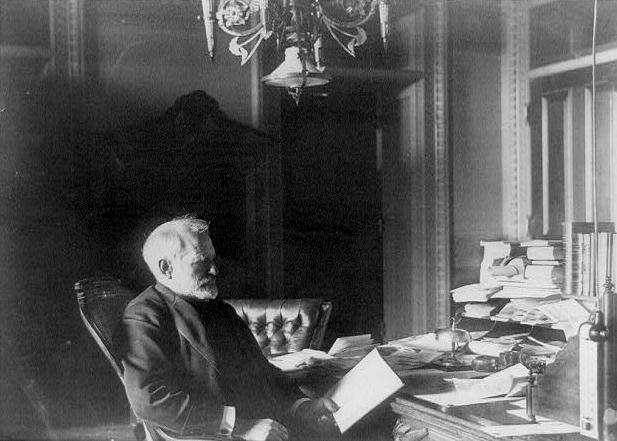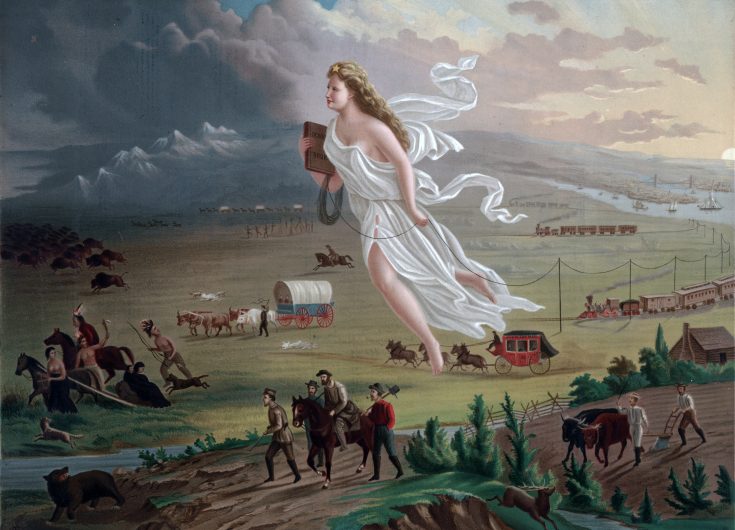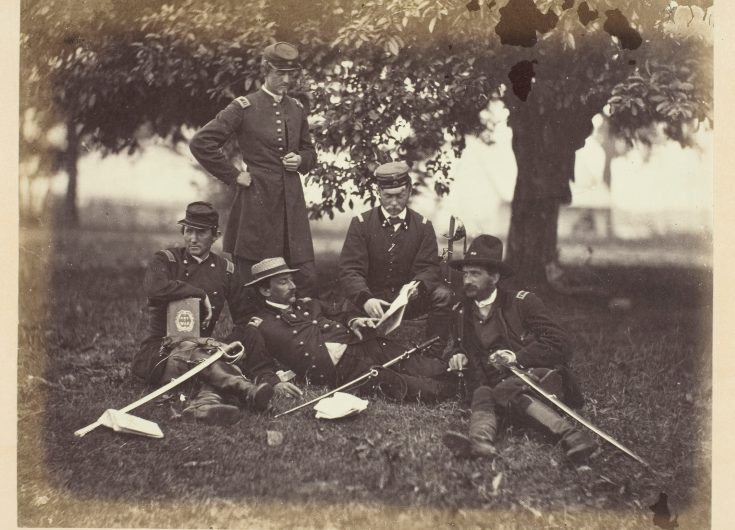May 22, 2009
William Gilpin, sometime U.S. Army officer, Western explorer, Mexican War veteran, friend of Andrew Jackson and Thomas Hart Benton, land speculator, and governor of the Colorado Territory (1861-1862), is sometimes accorded the title of America’s first geopolitician. In a series of articles and speeches, which were summarized in his best known publication, The Central Gold Region: The Grain, Pastoral and Gold Regions of North America (1860), Gilpin argued that the development of the interior of the continent, made possible in large part by a properly-sited transcontinental railroad, would create a new and dominant commercial line of communication between Europe and Asia. This would inaugurate a new era in human affairs focused around what would become the greatest civilization in history, the Republican Empire of North America.






